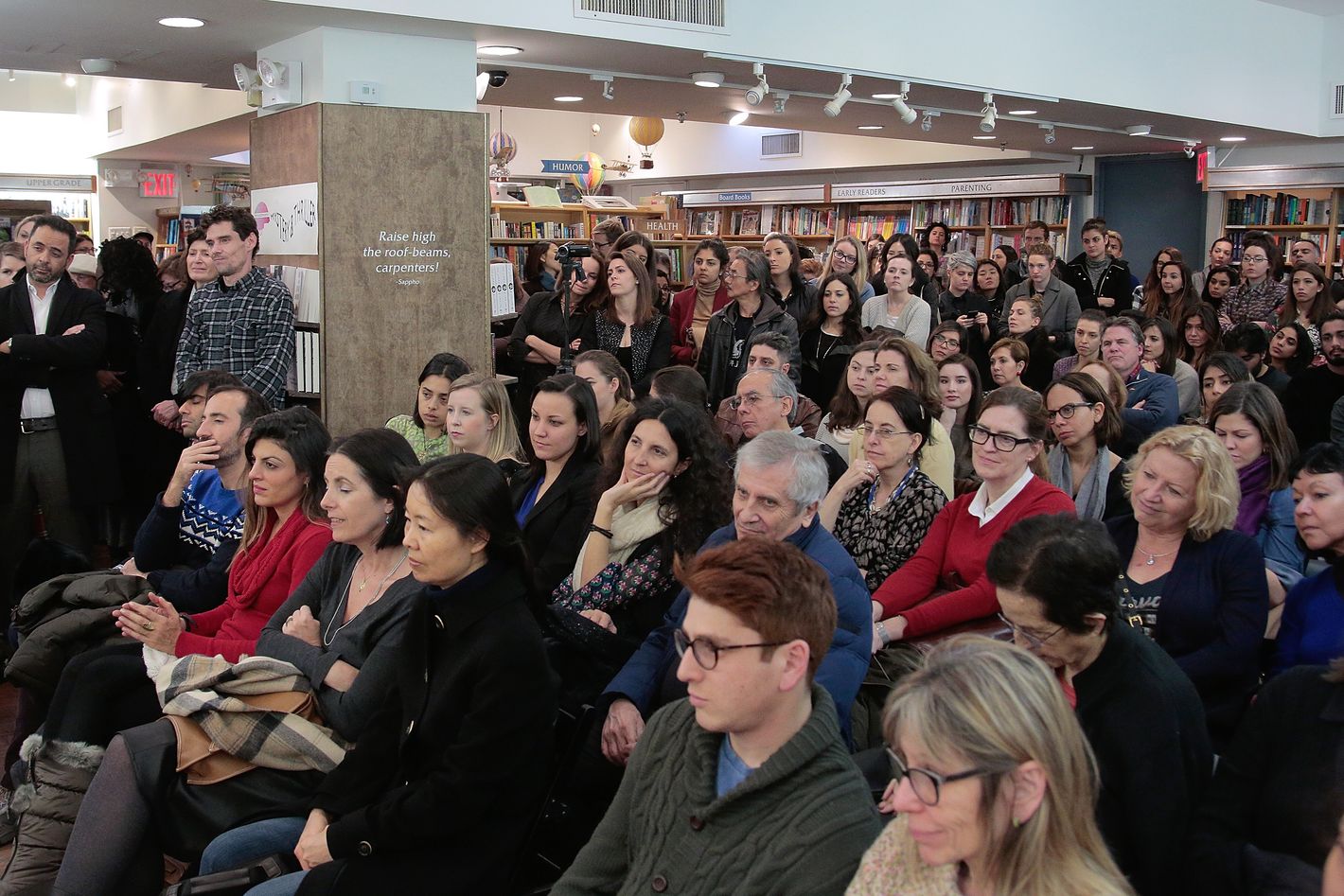

Beginning this spring, New York–based bookstore McNally Jackson is holding a twice-yearly festival that will take place mostly at its Seaport location. The first festival, a slate of events organized around the idea of archives, historiography, and legacies, is a sprawling affair: It will run from May 7 into June, with a series of talks, a print zine, and a phone-free closing party (involving “a secret lineup” and a musical guest) at newly hip Irish pub T.J. Byrnes in the Financial District. The second program, set to happen later this year, will be about New York City history and civic life.
The festival, founder and owner Sarah McNally says, is a way to give people “more access to high-level intellectual conversations in the city” between poets, fiction writers, and memoirists — “the usual subjects for bookstore events” — but also “architects, or academic historians, or journalists.” For some, authors will be joined by a relevant expert or two who have not published a book themselves, as with a talk on Hilma af Klint between biographer Julia Voss and Jodi Hauptman, a MoMA curator.
It also represents a step away from book launches, those Tuesday-night parties where a writer is fêted on their book’s release day. Held before most readers have had a chance to encounter the book, they can be a little stuffy — and perilously underattended for authors who don’t yet have a fan base. McNally Jackson will still host some launches, but the festival, according to McNally and director of events Kate Dwyer, is a way to extend the publicity cycle past its artificially constrained boundaries. “So often we hear about a book nonstop for two weeks, and then we never hear about it again,” Dwyer says. “This is not a criticism, per se, but there is this sense in publishing that book media and literary events are sort of responsive to the publishing cycle, and we’re really interested in following the culture and taking more of an editorially independent direction.”
The lineup this spring, planned in collaboration with the authors themselves, includes Annie Rauwerda, who runs the Depths of Wikipedia, with artist Michael Mandiberg and journalist Stephen Harrison; a conversation on criticism between New York Times critic Parul Sehgal and New York’s Andrea Long Chu; and a discussion about literary friendship with Lincoln Michel, Helen Phillips, Chloe Cooper Jones, and Kevin Nguyen.
Apart from the now-standard book launches and reading groups, McNally Jackson — like several other bookstores in the city — runs writing classes and seminars on classic novels, held a chess night with Pawn a couple weeks ago, and is starting a running club soon. And like Sean Manning, the publisher who made blurbs optional and aspires to run Simon & Schuster like “an entertainment company with books at the center” (the A24 of books, if you will), McNally and Dwyer say they want to rethink the “traditional mechanisms” of book promotion. Aside from the festival, the store will also hold one-off events for titles that aren’t brand-new throughout the year.
The first festival “is sort of an experiment,” McNally says; they’re toying with the idea of giving out punch cards to attendees who want to see how many talks they can make it to. “There will be events related to the festival at least two or three nights a week — we wanted to give people a chance to come to almost all of them without it completely swamping their social calendar. Sometimes you imagine something and then when you actually watch it come to life, you know it’s right. Even if it doesn’t land that well the first time, it doesn’t matter. You know that it’s the right thing to put into the city.”
Related

Latest News
For Sale! 2016 Sea Ray 350 Sundancer – $180,000
Reel Deal Yacht is pleased to feature a meticulously maintained 2016 Sea...
Roschman Sells Boathouse Marine Center to BlueWater for $16 Million
© Copyright – autocontently.com
Man United seals spectacular comeback to beat Lyon 5-4 and advance to Europa League semifinals
Manchester United’s season isn’t done yet. On a night of high drama...
NCAA panel gives final OK to rule designed to discourage football players from faking injuries
The NCAA Playing Rules Oversight Panel gave final approval to a rule...
Aaron Rodgers says he’s not holding teams hostage as he ponders his future in the NFL
Aaron Rodgers is in no rush to make a decision about his...













Leave a comment